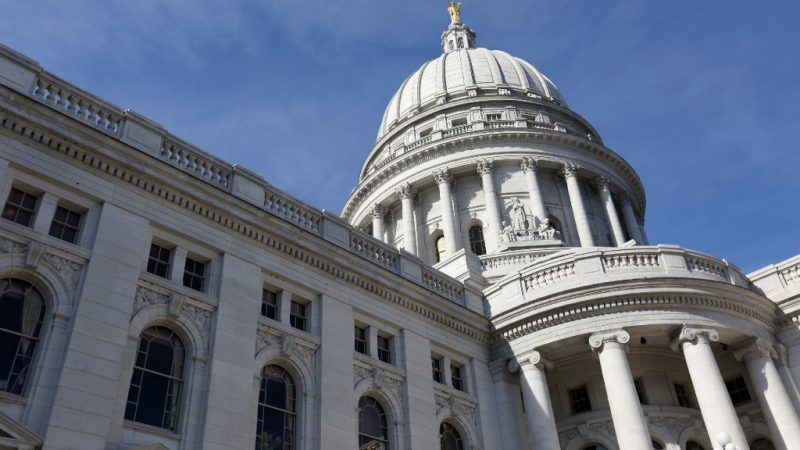Gov. Tony Evers today announced a sweeping stay-at-home order that limits personal contact between Wisconsinites, but will continue to allow essential businesses to remain open over the next month.
Evers’ order, which begins at 8 a.m. tomorrow, lists a host of businesses — from grocery stores and pharmacies to hardware stores and banks — that will be allowed to remain open. Still, many services — such as legal and accounting — are being directed to avoid person-to-person conduct as much as possible and work from home where possible.
And the order bans nonessential travel for state residents while still allowing them to go to the doctor, the grocery store and the pharmacy.
Evers banned public and private gatherings of any number of people unless they are part of a “single household or living unit,” with limited exceptions.
>> WisPolitics is now on the State Affairs network. Get custom keyword notifications, bill tracking and all WisPolitics content. Get the app or access via desktop.
While the order still allows outdoor activity such as hiking and visiting public and state parks, it requires social distancing requirements to be followed. Fees for state parks are being waived. It also bans contact sports such as basketball, ultimate frisbee, soccer or football because participants can’t meet social distancing requirements.
The guv also ordered playgrounds closed.
Evers said the order wasn’t something he thought “we’d have to do,” nor something he takes lightly. Still, he said the step was needed to ensure people start taking the pandemic seriously.
“Each and every one of us has to do our part to help slow the spread of COVID-19 so we can flatten the curve to ensure our doctors, nurses, and healthcare workers have the opportunity to do their important work,” Ever said. “Let’s all do our part and work together.”
Evers first announced via Twitter Monday morning that he planned to issue the order. Today’s announcement gives the first concrete details on what the order entails.
The order includes a lengthy list of what the guv defined as essential businesses that will be allowed to continue operations, though they were directed to limit person-to-person contact and meet social distancing requirements. Door-to-door solicitation was also banned, regardless of its purpose.
Those companies that will be allowed to remain open include manufacturers, distributors and supply chain companies producing products and services for industries that range from healthcare to national defense.
The list of essential businesses include:
- Stores selling groceries and medicine, including bakeries and farm and produce stands;
- Restaurants, though they are limited to take out and delivery;
- Child care centers, though they must prioritize the children of those working in health care;
- Wedding, funerals and religious entities, though they are restricted to gatherings of 10 or fewer people while adhering to social distancing;
- Gas stations and companies that provide supply, repair and sales for automobiles, motorcycles, boats and bicycles.
- Critical trades ranging from plumbers and electricians to exterminators and arborists who “provide services that are necessary to maintaining the safety, sanitation, and essential operation of residence.”
- Organized labor functions such as “the administration of health and welfare funds and personnel checking on the well-being and safety of members providing Services essential businesses, provided they’re done by phone or remotely.
- Hotels and motels, though they must stop guests from gathering in crowds and must shut down pools, hot tubs and exercise centers.
See the release here.
See the order here.
Click here for links to coronavirus resources.



